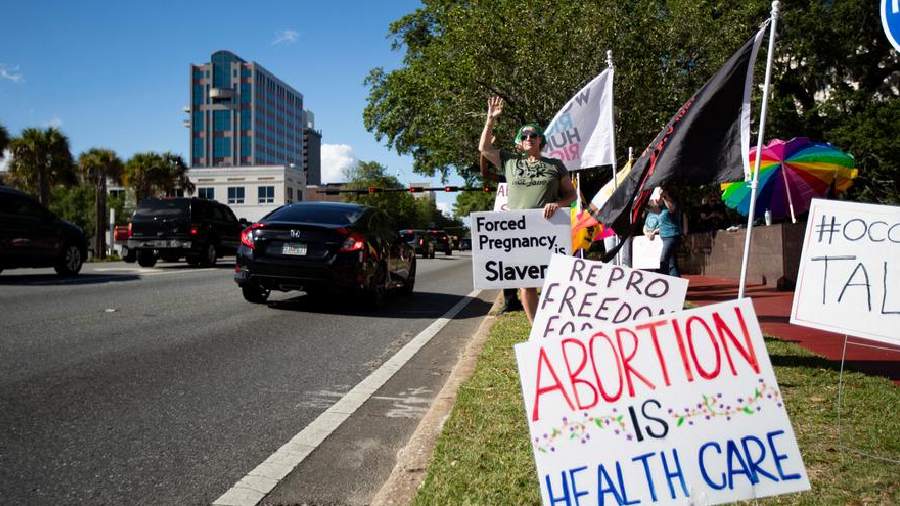Florida's Republican-dominated legislature has approved a ban on most abortions after six weeks.
The bill passed 70 votes to 40 in the state's lower house, a week after approval in the Senate, and will be sent to Governor Ron DeSantis for his signature.
It marked the second time in a year that the legislature in the southeastern US state voted to shorten the timeframe for a legal abortion. Last April, DeSantis signed a law reducing the window from 24 weeks to 15 weeks of pregnancy.
Even with the 15-week limit, Florida is one of the more permissive states in the southeastern US, and many women have traveled there from neighboring states to obtain abortions in recent months.
Last year's reversal of Roe v. Wade prompted more than a dozen states to effectively ban abortion outright.
White House slams the move
The White House slammed the measure which it said "flies in the face of fundamental freedoms and is out of step with the views of the vast majority" of Americans.
"This ban would prevent four million Florida women of reproductive age from accessing abortion care after six weeks before many women even know they're pregnant," White House Press Secretary Karine Jean-Pierre said in a statement.
The new bill establishes that women will not be able to have an abortion in Florida after six weeks of pregnancy unless the fetus is not viable, the pregnancy endangers the health of the mother, or is the result of rape or incest and does not exceed 15 weeks.
Republican supporters of the bill said the law safeguarded women's health by making exceptions for dangerous pregnancies.
Democrats said the bill would harm women and accused Republicans of prioritizing their religious beliefs over the health of their constituents.
Supreme Court to decide on abortion pill
Meanwhile, US Attorney General Merrick Garland said that the Justice Department will ask the Supreme Court to intervene to stop restrictions set by a federal judge on the abortion pill mifepristone.
President Joe Biden's administration is seeking to defend access to the drug, which is the most common method of abortion in the US.
The administration will seek emergency relief from the Supreme Court to defend the US Food and Drug Administration's "scientific judgment and protect Americans' access to safe and effective reproductive care," Garland said in a statement.
Last week, a US District Court judge in Texas overturned the FDA's two-decades old approval of the drug. But on Wednesday, the 5th US Circuit Court of Appeals put part of that order, which would have removed the drug from the market, on hold.
The Texas judge's order was set to take effect on Saturday, according to the Justice Department.










